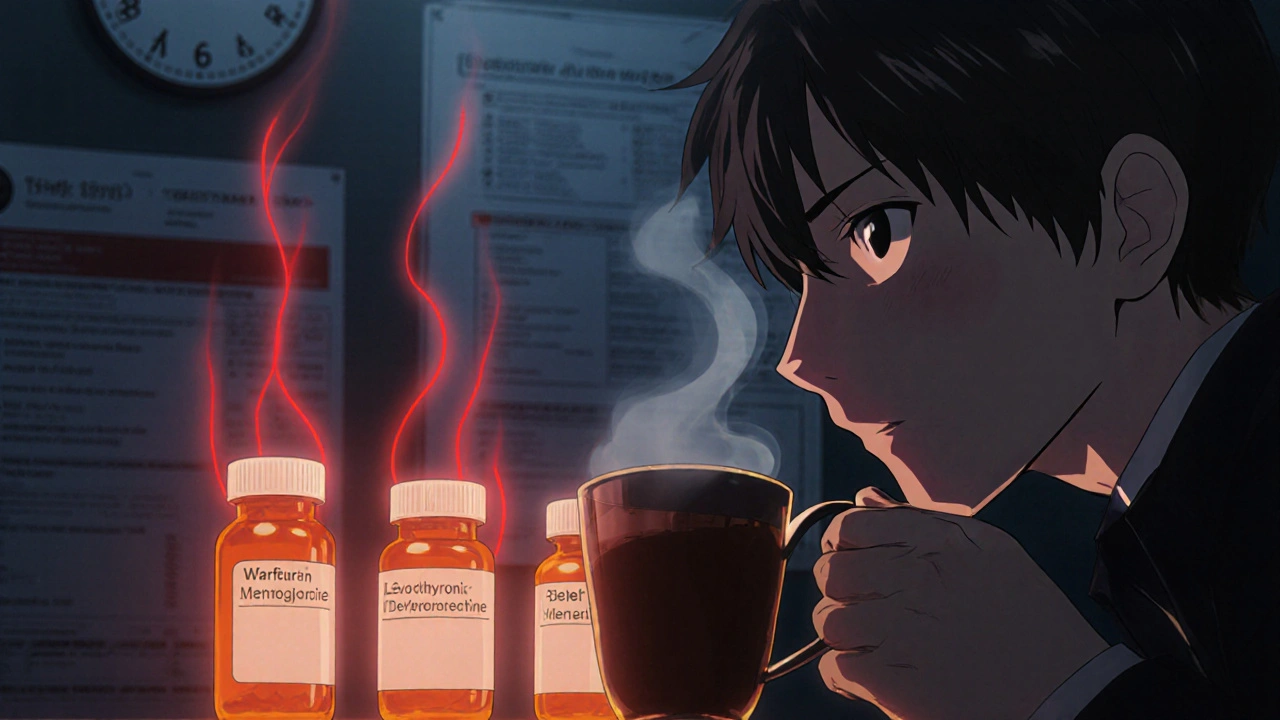
Most people drink coffee without thinking twice. But if you’re on medication, that morning cup could be doing more than just waking you up-it might be messing with your drugs in ways you can’t see. Caffeine isn’t just a stimulant. It’s a powerful chemical that interacts with dozens of prescription and over-the-counter medicines, sometimes with serious consequences. You might not feel anything unusual, but your blood levels of medication could be dropping, spiking, or becoming unpredictable. And that’s when things get dangerous.
How Caffeine Changes How Your Body Handles Medicine
Caffeine doesn’t just buzz through your system. It actively interferes with how your liver breaks down other drugs. The key player here is an enzyme called CYP1A2. This enzyme handles about 10% of all medications you take, including blood thinners, antidepressants, asthma drugs, and thyroid medicine. Caffeine blocks this enzyme. When that happens, your body can’t process those drugs the way it should.
Think of it like traffic. Your liver is a busy intersection. Caffeine shows up and jams the signal, causing delays-or worse, backups. Some drugs build up too high in your blood, increasing side effects. Others get cleared too fast, making them useless. And because caffeine’s effects can last 6 to 9 hours-or longer if you have liver problems or are older-the window for interference is wide.
High-Risk Interactions You Can’t Ignore
Not all interactions are the same. Some are mild. Others can land you in the hospital. Here are the most dangerous ones, backed by clinical data:
- Warfarin (Coumadin): Caffeine slows down how fast your body clears warfarin. This causes your INR to rise by 15-25% within 24 hours. A high INR means your blood takes longer to clot. That increases your risk of bleeding-sometimes severely. One study found that 41% of warfarin patients who drank more than 200 mg of caffeine daily had INR levels above 4.0, the danger zone. Some needed emergency care.
- Levothyroxine (Synthroid): If you take your thyroid pill with coffee, you’re absorbing up to 55% less of the drug. That’s not a small drop. One patient reported her TSH jumped from 1.8 to 8.7 after drinking coffee with her pill for just three weeks. Her endocrinologist confirmed: coffee was the cause.
- Theophylline: Used for asthma and COPD, this drug shares the same liver pathway as caffeine. When you combine them, theophylline levels can spike by 15-20%. That can lead to nausea, rapid heartbeat, tremors, or even seizures-even if you’ve been taking the right dose for years.
- Adenosine and Dipyridamole: These are used during cardiac stress tests to check heart function. Caffeine blocks their effects. If you drink coffee within 24 hours of your test, it can fail by 70-90%. You might need to reschedule, delay diagnosis, or get an inaccurate result.
- Ephedrine and Pseudoephedrine: Found in cold and allergy meds, these stimulants team up with caffeine to push your heart rate up by 20-30 beats per minute. For someone with high blood pressure or heart issues, that’s a recipe for a hypertensive crisis. Clinical trials showed systolic blood pressure rising over 30 mmHg in 68% of cases.
- Verapamil: This calcium channel blocker lowers blood pressure. Coffee reduces its effect by 25-30%. That means your BP might stay high even though you’re taking your pills.
What About Antidepressants?
It’s complicated. Some SSRIs like fluvoxamine are heavily affected by caffeine. Studies show caffeine can reduce fluvoxamine absorption by up to 33%. That means you might feel like the medication isn’t working-even though you’re taking it exactly as prescribed. Patients report increased anxiety, irritability, or worsening depression when they drink coffee on top of these drugs.
But not all antidepressants react the same. Bupropion (Wellbutrin) doesn’t seem to interact significantly with caffeine. The difference comes down to how each drug is metabolized. That’s why you can’t assume all antidepressants are safe-or unsafe-with coffee. Always check with your doctor or pharmacist.
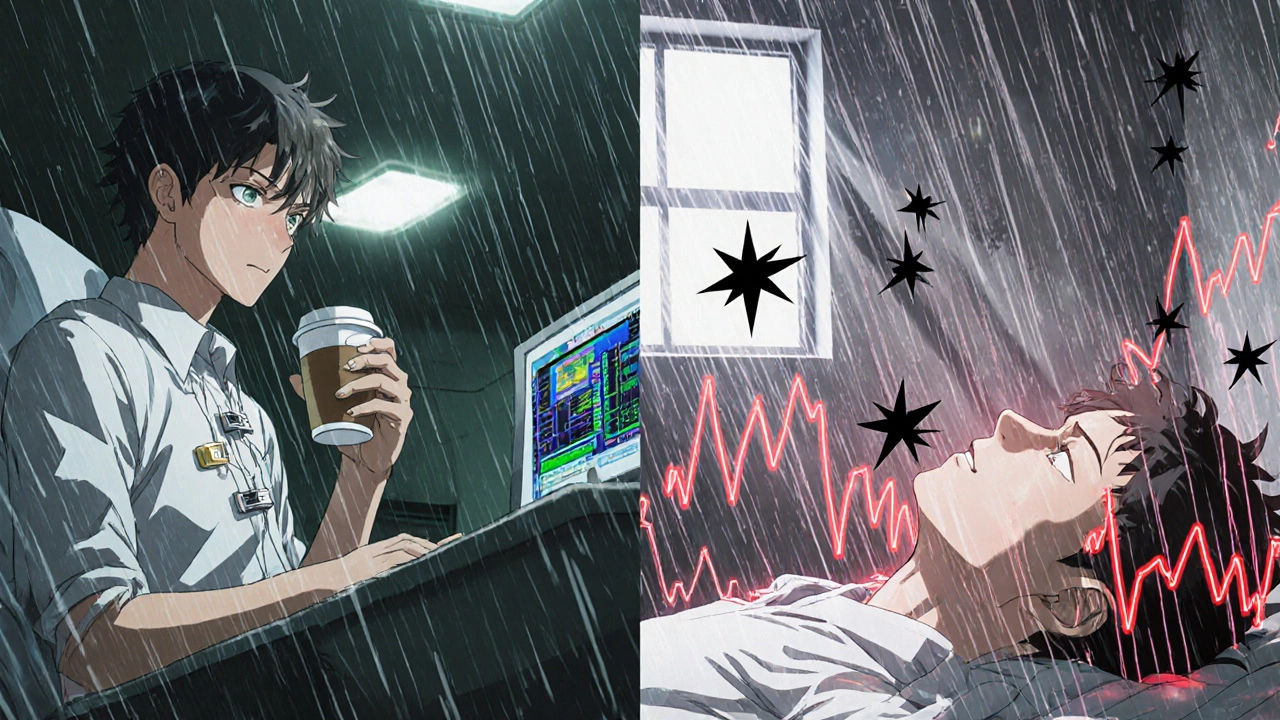
Energy Drinks Are a Hidden Danger
It’s not just coffee. Energy drinks pack 80-300 mg of caffeine per serving-sometimes more than two cups of coffee. And they don’t stop there. Many also contain taurine, ginseng, guarana, and other stimulants that can independently affect how your body handles drugs. These combinations are rarely studied, but they’re increasingly linked to serious side effects.
The FDA reported a 37% spike in caffeine-medication adverse events between 2020 and 2024. Energy drinks accounted for 68% of the serious cases. That’s not a coincidence. The caffeine load is higher, and the other ingredients make the mix unpredictable. If you’re on medication, energy drinks aren’t worth the risk.
What You Should Do Right Now
Here’s what works, based on clinical guidelines and patient outcomes:
- Separate coffee from thyroid meds. Take your levothyroxine with water on an empty stomach, then wait at least 60 minutes before drinking coffee. Some experts recommend 90 minutes for maximum safety.
- Keep caffeine consistent. If you drink coffee daily, stick to the same amount. Don’t suddenly switch from one cup to four. Warfarin users, especially, need stable caffeine intake to keep INR levels predictable.
- Avoid caffeine 24 hours before cardiac stress tests. That means no coffee, tea, energy drinks, or chocolate. Even decaf coffee has enough caffeine to interfere.
- Limit caffeine if you take theophylline. Stick to under 100 mg per day-that’s about one small cup of coffee. Watch for a fast heartbeat (over 100 bpm) or shaking. Tell your doctor if you notice these.
- Check all your meds. Look at the labels. If you’re on more than five medications, your risk of interaction jumps 3.2 times. Ask your pharmacist to run a caffeine interaction check during your next refill.
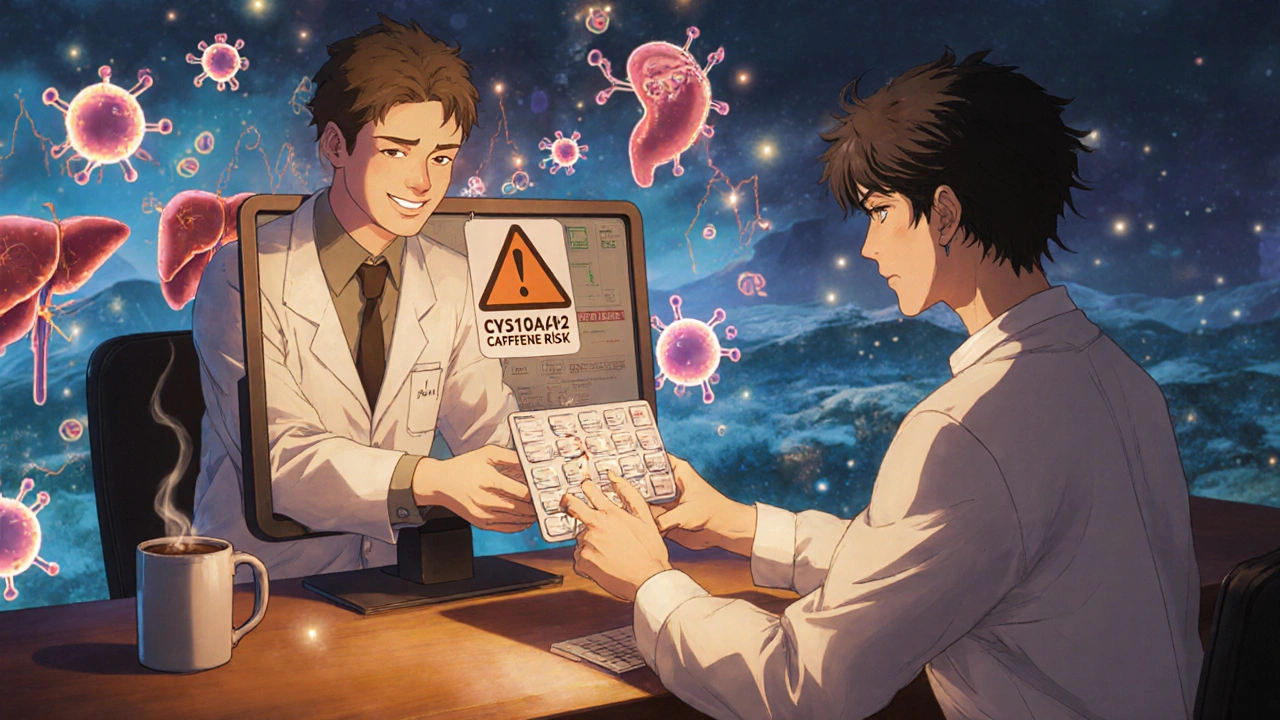
Why Most People Don’t Know This
A JAMA Internal Medicine study in April 2024 found that 62% of patients had no idea caffeine could interfere with their meds-even though 89% drank it daily. Doctors don’t always bring it up. Pharmacists are starting to, thanks to new training requirements from the American Pharmacists Association. But you can’t wait for someone else to warn you.
If you’re on long-term medication, assume caffeine is a potential risk until proven otherwise. Don’t rely on “it’s just coffee.” That’s like assuming salt won’t affect your blood pressure. It’s not about being paranoid. It’s about being informed.
What’s Changing in 2025
The medical world is catching up. The NIH launched a $4.7 million study in January 2025 to track how genetic differences in CYP1A2 affect caffeine interactions across different populations. That’s important because some people naturally break down caffeine faster than others.
Pharmaceutical companies are now required to warn about caffeine on 23% of prescription labels-up from 12% in 2019. Electronic health records like Epic Systems are rolling out automated caffeine interaction alerts in 47 hospitals. Early results show a 29% drop in related adverse events.
By 2028, experts predict personalized caffeine guidance based on genetic testing will become standard. Until then, the safest move is simple: know your meds. Know your coffee. And don’t mix them without checking.
When to Call Your Doctor
Call your doctor or pharmacist if:
- Your medication seems less effective than before
- You’re experiencing new side effects like rapid heartbeat, dizziness, or unexplained bruising
- Your blood test results (like INR or TSH) suddenly change without a clear reason
- You’ve recently started or stopped drinking coffee or energy drinks
Don’t wait for symptoms to get worse. A quick check can prevent a trip to the ER.


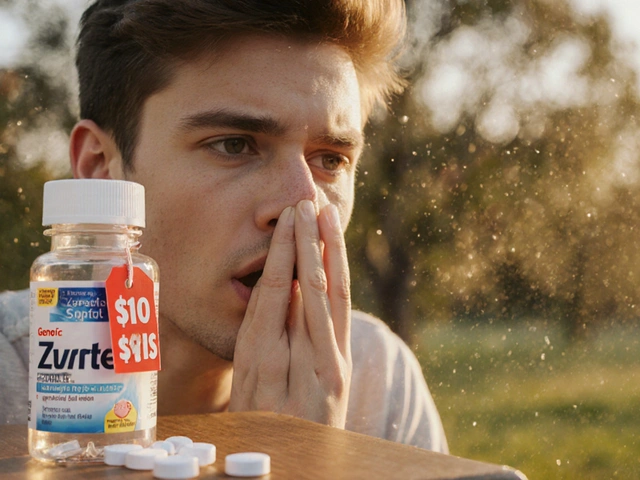
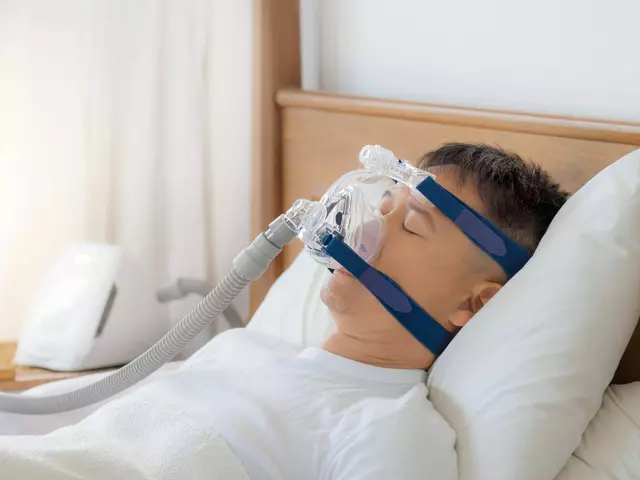
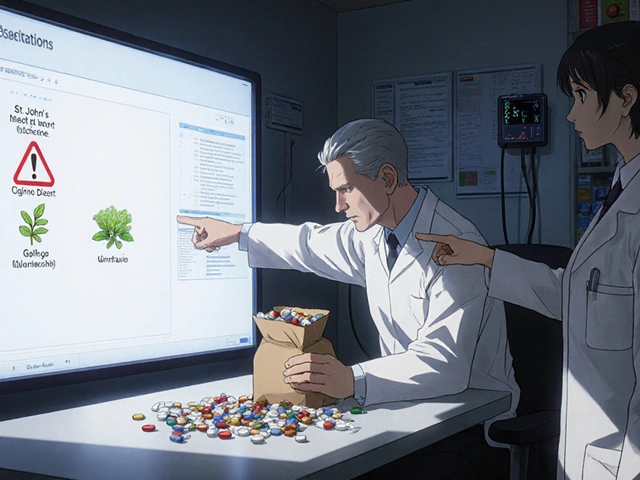
Summer Joy
November 20, 2025 AT 00:32Aruna Urban Planner
November 20, 2025 AT 06:29Nicole Ziegler
November 21, 2025 AT 10:02Bharat Alasandi
November 21, 2025 AT 19:45Kristi Bennardo
November 21, 2025 AT 21:26Shiv Karan Singh
November 23, 2025 AT 00:10Ravi boy
November 24, 2025 AT 16:57Matthew Karrs
November 25, 2025 AT 08:59Gerald Cheruiyot
November 25, 2025 AT 16:43Michael Fessler
November 27, 2025 AT 16:01daniel lopez
November 27, 2025 AT 22:13Ron and Gill Day
November 28, 2025 AT 19:30